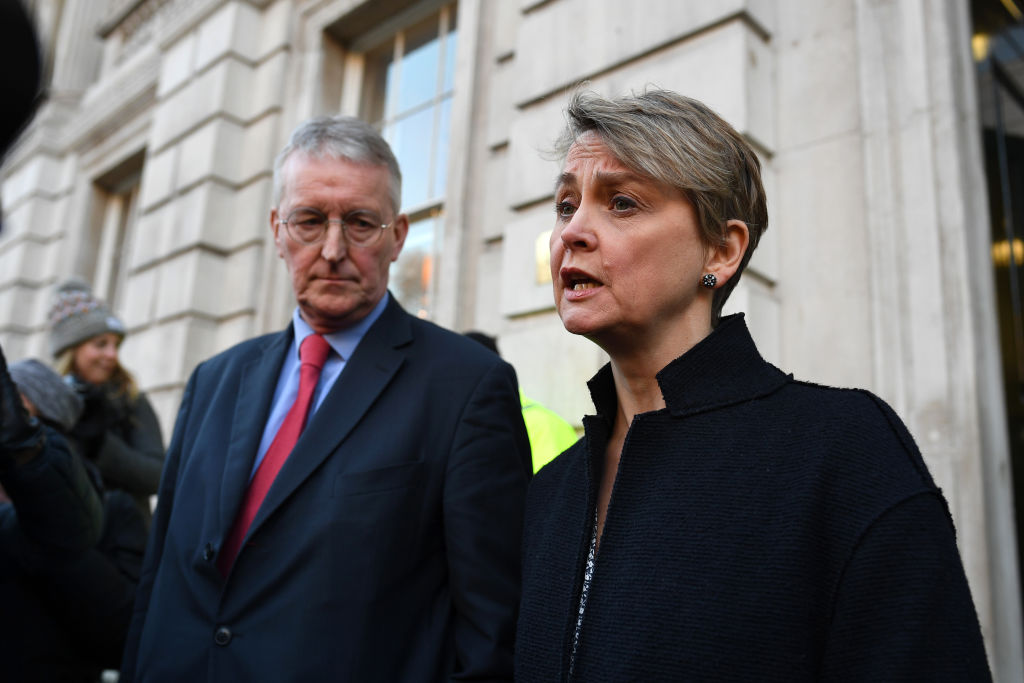
- Select a language for the TTS:
- UK English Female
- UK English Male
- US English Female
- US English Male
- Australian Female
- Australian Male
- Language selected: (auto detect) - EN
Play all audios:
Boris Johnson put the idea of “Global Britain” at the heart of his electoral campaign. Throughout 2019 it remained a vague concept of international renewal for the UK, at that point on the
brink of unshackling itself from the EU. The long anticipated formalisation of that vision has now appeared as part of the long-awaited Integrated Review of security, defence and foreign
policy, with the rather prosaic title _Global Britain in a Competitive Age_. The paper is a tour de force in outlining the challenges that Britain will face in the next decade and answering
a number of important questions, such as our relative relationship with our European Nato allies and the United States. It is no surprise that the Review states that the US remains our
principal ally; indeed, the much trailed reduction in our conventional military capability means we are dependent on American support even more. For at least the last decade, and in reality
far longer, Britain has acknowledged that overseas deployments will almost always be required to be in tandem with an ally. That position is cemented with this latest review, not only in our
transatlantic relationship, but in the long overdue recommitment to our security relationship with our European neighbours. This situation had become increasingly muddled, given the
fractious relationship with the EU post-Brexit. Hopefully, the Review will act as an affirmation of continued intent to work with European allies on issues of collective defence. The paper
contains other important, albeit expected, points of much needed continuity. So there is an explicit statement that the US remains the most important bilateral ally and “Nato will remain the
foundation of collective security in our home region of the Euro-Atlantic, where Russia remains the most acute threat to our security.” Nonetheless, the most important point from the Review
is that the UK simply cannot rely on the maintenance of the status quo. As the paper puts it, “Over the last decade, UK policy has been focused on preserving the post-Cold War ‘rules based
international system’…Today however, the international order is more fragmented, characterised by intensifying competition between states over interests, norms and values. A defence of the
status quo is no longer sufficient for the decade ahead.” This is the most forward looking, even pessimistic, vision of any of the formal national security documents of Nato members. We are
entering uncharted territory. Yet the part of the Review already leading to most controversy within the Conservative Party is the ambiguous stance it takes towards China. “We will invest in
enhanced China-facing capabilities, through which we will develop a better understanding of China and its people, while improving our ability to respond to the systemic challenges that it
poses to our security, prosperity and values – and those of our allies and partners. We will continue to pursue a positive trade and investment relationship with China, while ensuring our
national security and values are protected. We will also cooperate with China in tackling transnational challenges such as climate change.” To its credit the Review recognises that such a
pivot to Asia is not dependent on our acutely vulnerable new aircraft carrier, which is unlikely to make a meaningful contribution to the balance of power in the South China Sea. The Review
makes the sensible observation that, for the UK at least, the real clash with China will be over “interests, norms and values”, rather than the territorial defence of the Spratly Islands. No
doubt the vocal China hawks will want further clarification over exactly how a “positive trade and investment relationship with China” can be pursued “while ensuring our national security
and values are protected”. Is Johnson’s Integrated Review about projecting power or managing decline? Yet such a suggestion is not quite as nonsensical as it might appear at first sight. As
Robert Fry has noted, the new, smaller size of the British Army makes expeditionary warfare of the type undertaken over the past twenty years all but unthinkable, with equally significant
force reductions for the Royal Air Force. Yet the whole point of an “Integrated” Review is that Britain is aware of the changing nature of the fight and leveraging its democratic values in
shaping the world order. So a more nimble fighting force will intervene perhaps even more widely, but with less depth of engagement, in order to help defend democratic values. This is so
called grey zone engagement, operations below the threshold of formal combat. There is little doubt that the Integrated Review is a serious piece of analysis. Despite this, the most
important tensions at the heart of the Review remain unanswered. What is the relative importance the UK places on Euro-Atlantic security focused on Russia, versus our commitment to the
Indo-Pacific? We are in effect significantly increasing our military footprint, while simultaneously committing ourselves to massive reductions in manpower and sheer volume of vehicles and
capability. In extremely crude terms, military mass still matters a great deal in warfighting. Yes, cyber and space capabilities matter too but they currently do not make up for the reduced
number of F-35 and Wedgetail planes, or boots on the ground. Britain will have to engage in careful negotiation with Nato to ensure that the changing structure of our armed forces do not
impinge upon our commitment to the alliance. In effect we are acknowledging that we have to face greater threats with less capability. In that sense the Integrated Review actually looks a
lot like a throwback to the Macmillan era decisions about Britain’s role in the world. Harold Macmillan and Boris Johnson seem to have a common belief that Britain’s relative military
decline can be offset through “interdependence”, so that the UK can continue to play an influential global role, disproportionate to its actual economic and military strength. Johnson may
well be correct that the locus of world affairs has tilted once again “East of Suez”. However, it is less clear how effectively Britain can maintain her relevance in that sphere, whilst also
maintaining the primary goal of territorial security in the face of Russian resurgence. Again borrowing from Macmillan, the Integrated Review suggests that Britain’s trade-off for
maintaining great power status is in the unexpected increase in the cap on our nuclear force. The absolute figure of warheads is a state secret but the Integrated Review has increased the
maximum number we may hold to 260. There is significant precedence for such an “offset” strategy which trades nuclear for conventional military force. Eisenhower did so with the US “New
Look” strategy and Harold Macmillan made a similar decision that nuclear weapons would allow Britain to reduce its conventional forces committed to continental Europe. Macmillan, a veteran
of two world wars, committed as little to Europe as was politically tenable, while continuing to spread forces thinly around the globe. Perhaps Johnson intends to follow suit. In many ways,
the Integrated Review is a political strategy more than a military strategy. The Review seeks to square the circle of replacing conventional capability with an enhanced nuclear deterrent by
changing the rules of nuclear engagement. Thus the possibility that massive cyberattack or chemical weapon attack could now invoke a limited nuclear response edges closer. Macmillan tried a
similar approach that necessitated a new Nato strategic concept that led to the notion of a “trip wire”. Britain’s new posture will almost certainly require similar negotiations with Nato
and bilaterally with her allies. Doubtless these will prove fascinating to watch. Whether technology will allow Johnson a get-out clause, as it did Macmillan and Harold Wilson, who enthused
about its “white heat”, remains to be seen. The Review announces what may be the biggest investment in the armed forces since the end of the Cold War, but it will still see a decline in
conventional capability. The effect of this on Britain’s power projection and alliances is still unknown. The Integrated Review shows acute analysis in identifying the dynamic of “Systemic
Competition between states…Manifested in: a growing contest over international rules and norms”. However, real questions remain about how effectively this new strategy will solve the problem
of “the formation of competing geopolitical and economic blocs of influence and values that cut across out security, economy and the institutions that underpin our way of life; the
deliberate targeting of the vulnerabilities within democratic systems by authoritarian states.” Identifying the problem is merely the first step. As the former military head of Nato, US
General Curtis Scaparrotti, put it two weeks ago, there are certain unavoidable military truths at the heart of Britain’s most importance alliance. Specifically, Britain’s credibility rests
on its ability to provide a fully manned and equipped armoured division. He further emphasised the utility of experience of that level of combatant command for credible senior leadership.
It is entirely possible to find the analysis contained in the Integrated Review extremely convincing. However, it is also possible that the solutions that the Review offers undermine
Britain’s credibility as a conventional military power. The risk is that the Integrated Review undercuts Britain’s ability to provide a level of conventional force that our principal ally,
the United States, finds useful or that ensures our military leadership a position at the top table. A MESSAGE FROM THEARTICLE _We are the only publication that’s committed to covering every
angle. We have an important contribution to make, one that’s needed now more than ever, and we need your help to continue publishing throughout the pandemic. So please, make a donation._



:max_bytes(150000):strip_icc():focal(299x0:301x2)/ben-feldman-600-f72578eb9e084d0186454a171419f10a.jpg)
